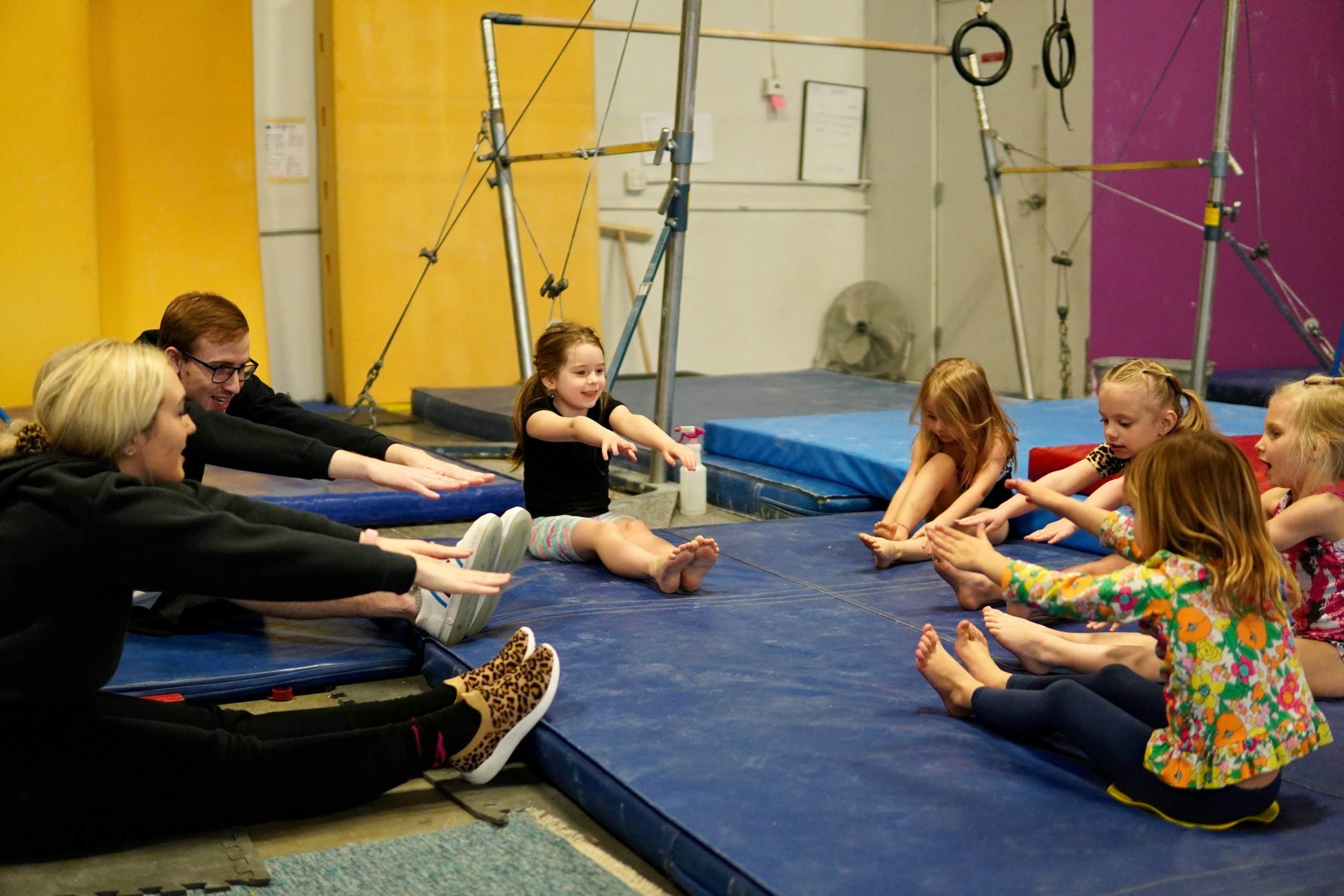Leadership plays a crucial role in every sphere of life, and sports is no exception. Great leaders in sports are often the invisible force that guides teams to victory. These leaders, however, are not born but are made. They are often the product of their experiences and influences. So, how do athletes develop their leadership skills? Many do so through mentoring and coaching young athletes. This process not only fosters leadership in the younger generation but also helps the athletes themselves to hone their leadership skills.
Leadership in Sports: A Closer Look
Before we delve into how athletes develop their leadership skills, it is important to understand the role leadership plays in sports. Leaders in sports are more than just the team captains. They are the individuals who influence their teammates, motivate them, and guide them towards achieving a common goal. They are the ones who set the tone for the team’s behavior and performance.
Dans le meme genre : How can sports organizations promote ethical conduct and sportsmanship in youth sports officiating?
Coaches and athletes alike recognize the importance of leadership. These leaders have a profound impact on their teams, often influencing the team’s cohesion, satisfaction, and overall performance. They often act as role models, motivate their team, and possess the ability to guide their teams through challenging situations.
However, leadership skills are not innate. They require development, much like any other skill. Athletes can develop these skills through a variety of methods, one of them being the mentoring and coaching of young athletes.
A lire aussi : What are the psychological effects of sports-related controversies and media scrutiny on athletes’ mental states?
Mentoring: Fostering Leadership Skills in Athletes
Mentoring is an effective way for athletes to develop their leadership skills. When athletes take on the role of a mentor, they are given the responsibility to guide, influence, and counsel a younger athlete. This process requires them to exhibit leadership behaviors that they themselves might not have been aware of.
Mentoring programs serve as a platform for athletes to experience leadership. By guiding a young athlete, they learn how to be patient, inspire others, make decisions, and provide constructive feedback. These are all qualities of a great leader.
Furthermore, mentoring young athletes often involves helping them overcome challenges and hurdles. This requires the athlete-mentor to think critically, make tough decisions, and provide solutions – all of which are crucial leadership skills.
Coaching: A Platform for Leadership Development
Coaching, much like mentoring, provides a platform for athletes to develop their leadership skills. When athletes take up coaching roles, they are not just teaching sport-specific skills. They are also managing a team, making strategic decisions, and influencing their athletes’ behavior.
Coaching requires athletes to display a variety of leadership behaviors. They need to communicate effectively, motivate their team, handle conflicts, and demonstrate a positive attitude. All of these are leadership skills that athletes enhance while coaching youth sports.
Furthermore, coaching youth teams also exposes athletes to different aspects of leadership. They experience the challenges of leadership, such as dealing with difficult situations, making tough decisions, and managing a diverse group of individuals.
Coaching youth sports also allows athletes to practice their problem-solving skills. They often need to devise strategies to improve their team’s performance, handle conflicts among team members, and manage their team effectively. This further enhances their leadership skills.
The Role of Coaches in Athlete Leadership Development
While athletes can develop their leadership skills through mentoring and coaching, their coaches play a crucial role in this development process. Coaches are often the first leaders athletes encounter in their sports journey. Their behaviors, values, and leadership style often influence the athlete’s own leadership development.
Coaches can foster leadership in their athletes through various methods. For example, they can assign leadership roles to their athletes, encourage them to make decisions, and provide opportunities for them to lead. This hands-on experience in leadership can greatly enhance an athlete’s leadership skills.
Moreover, coaches can also provide feedback and guidance to their athletes. They can highlight the athlete’s strengths, point out areas for improvement, and provide constructive feedback. This feedback can help athletes refine their leadership skills and behaviors.
The Impact of Leadership Development on Teams and Sports
The development of leadership skills in athletes can have a profound impact on teams and sports. A team with strong leaders can function effectively, overcome challenges, and perform well. These teams tend to be more cohesive, satisfied, and successful.
Moreover, leadership development in sports can also increase the overall quality of sports. Athletes with strong leadership skills often exhibit positive behaviors, show respect for their opponents, and are good role models for younger athletes. This not only enhances the image of the sport but also promotes a positive sports culture.
In conclusion, leadership development in athletes is crucial for the success of teams and sports. Through mentoring and coaching young athletes, athletes can develop and enhance their leadership skills. The role of coaches is also paramount in this development process, as their behaviors and actions often influence the athlete’s leadership skills.
Building Leadership through Mentoring and Coaching: Practical Examples
Several athletes have benefited from the leadership development that mentoring and coaching young athletes present. For instance, consider a high school football player who takes on the role of assistant coach for a junior team. This involvement offers an opportunity for the player to develop their leadership skills further.
As a coach, the player must strategize for matches, manage the team, handle conflicts, and make decisions that affect the team’s overall performance. Additionally, they must communicate effectively with both the players and other coaching staff. These are all significant aspects of effective leadership.
Similarly, an experienced athlete mentoring a beginner taps into their leadership potential. They instill confidence, motivate, and provide guidance to the mentee. The mentor must also exhibit patience and the ability to provide constructive feedback, all crucial elements of leadership.
For instance, in a study published in Sport Psychol, it was found that young athletes who were mentored by more experienced athletes showed improved performance, increased motivation, and higher self-esteem. This goes to show that the mentor, in exerting their leadership, not only benefits themselves but also contributes to the overall improvement of the mentee.
The Contribution of Autocratic and Democratic Coaching Styles to Athlete Leadership Development
Different coaching styles can also influence the development of leadership skills in athletes. Autocratic coaching and democratic coaching are two contrasting styles that have different impacts on athlete leadership.
Autocratic coaching is characterized by the coach making all decisions with minimal input from the athletes. This style might seem like it stifles leadership development as it offers little room for athletes to make decisions. However, it can be beneficial in promoting leadership behaviors when used judiciously. When athletes observe the autocratic coaching style, they can learn important leadership skills such as decisiveness, assertiveness, and the ability to command respect.
On the other hand, the democratic coaching style involves the coach encouraging athletes to participate in decision-making. This style provides a platform for athletes to practice their decision-making skills, an important aspect of leadership. Additionally, it fosters a sense of responsibility and encourages them to take on leadership roles within the team.
Conclusion: Mentoring, Coaching and the Future of Sports Leadership
Leadership is a crucial asset in sports, and the development of leadership skills in athletes is vital for the success of sport teams. Through mentoring and coaching young athletes, sports figures can refine their leadership behaviors, enhancing their effectiveness as leaders.
Coaches play a pivotal role in athlete leadership development. Their coaching style, whether autocratic or democratic, can influence the leadership skills that athletes develop. Thus, coaches must be conscious of their actions, as they can shape the future leaders in sports.
Moreover, fostering leadership in sports does not only benefit the athletes and teams but also the larger sports community. Athlete leaders serve as role models, promoting positive behaviors and a healthy sports culture. Through their leadership, they can influence younger athletes, encouraging them to pursue their sports journey.
In a nutshell, mentoring and coaching young athletes provide a valuable platform for athlete leadership development. This process is a win-win situation; while athletes enhance their leadership skills, they are also instilling these vital skills in the younger generation. As such, it is a dynamic and effective way of ensuring continued growth and success in the world of sports.






